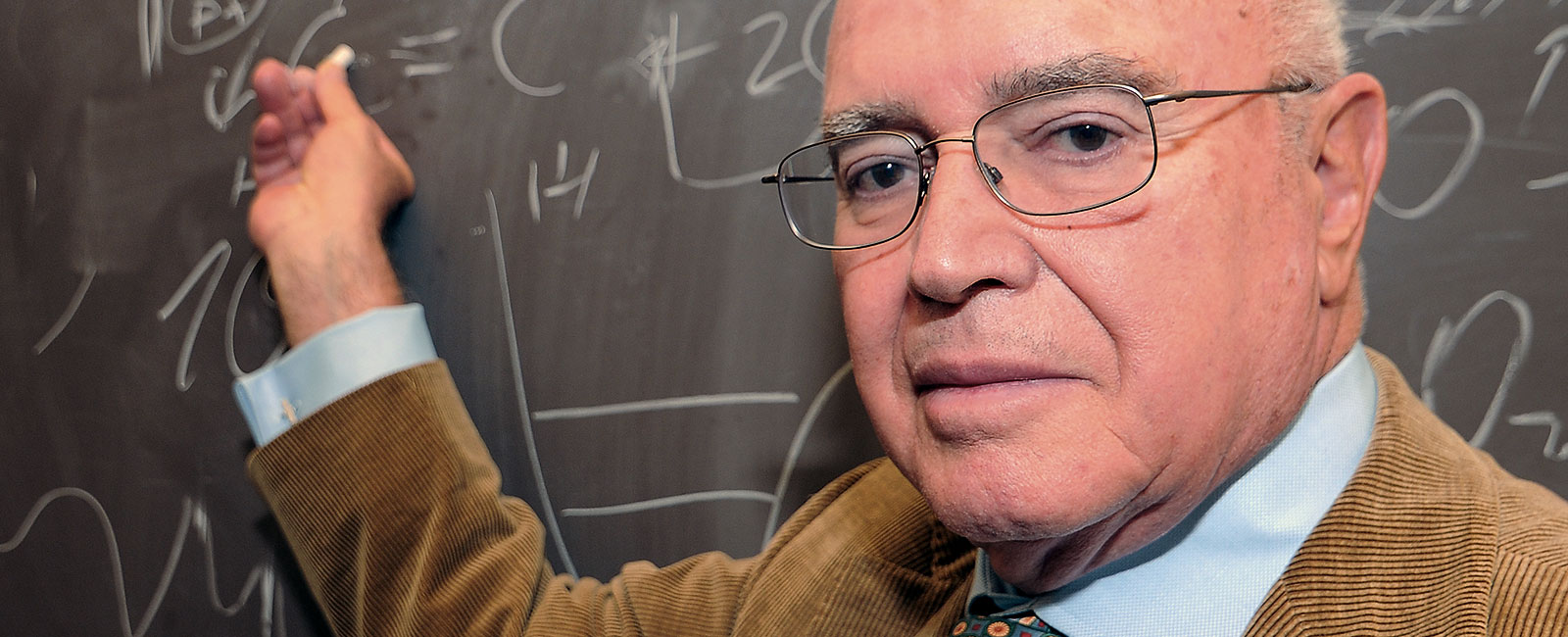Somorjai wins the BBVA Foundation Frontiers of Knowledge Award for insights facilitating the control of key chemical reactions in productive and environmental processes
The BBVA Foundation Frontiers of Knowledge Award in the Basic Sciences category goes in this third edition to the U.S. scientist of Hungarian origin Gabor A. Somorjai, “for his pioneering experimental and conceptual contributions to the understanding of surface chemistry and catalysis at a microscopic and molecular level”, in the words of the prize jury.
27 January, 2011
“The chemical processes that occur on surfaces are of crucial importance in such varied fields as catalytic converters for automobiles or the industrial production of fertilizers and pharmaceuticals”, the citation continues. The new laureate “has made pioneering contributions to the development of surface chemistry, with enormous repercussions in our everyday and economic life.”
The work of Gabor A. Somorjai (Budapest, 1935) marks the transition from an empirical, macroscopic brand of chemistry, fundamentally reliant on trial and error, to a chemistry capable of exploring the world at the molecular scale and understanding the events unfolding at a more basic level. Knowing how molecules work is a first step to controlling chemical reactions at will.
In the telephone conversation following news of the award, Somorjai gave the following insights into his work: “We have progressed from a state of ignorance on what was happening with chemical reactions to seeing an unexpected landscape open up before our eyes. We were in a phase based on empirical, macroscopic description then suddenly we had the tools to investigate at the molecular level. All the beauty and potency of surface reactions were laid out before us”.
Most chemical reactions occur on the surface of compounds. Back in the 1960s, however, little was known about what these reactions signified on the molecular scale. Somorjai has been “an inspirational force”, the jury concludes, “for research in this field, and is regarded by his peers as the ‘father of modern surface chemistry’”.
Somorjai’s approach has helped to control and optimize surface chemical reactions and led to a far better understanding of such universal interactions as adhesion, lubrication or friction.
He has also devised ingenious experimental techniques and introduced major improvements to existing methods, combining vacuum-based techniques with others operating in less stringent (vacuum-free) conditions.
A long list of industries have benefitted from Somorjai’s work. Pharmaceuticals, for instance, agriculture – through fertilizers – or the automobile industry – through catalytic converters. Advances in surface chemistry have facilitated the synthesis of semiconductor materials that are the raw material for microelectronics, the development of hydrogen-powered electric vehicles, and the observation and study of natural processes.
The energy crisis and “green chemistry”
“Everything is chemistry”, Somorjai remarked yesterday, content to be receiving the award at the start of International Year of Chemistry 2011. “The fact you are talking is a chemical process involving the neurons in your brain. Energy conversion is chemistry too, and who can deny that our standard of living depends on pharmaceuticals and other processing industries”.
He is convinced that the search for efficient alternatives to fossil fuels is “one of the frontier issues in science”, and that surface chemistry can provide at least some of the answers. Another pressing challenge is to obtain more selective reactions, which produce only the desired product without creating waste, following the principles of “green chemistry”.
A 20th-century biography
Gabor A. Somorjai’s life has been an eventful one. Born in Budapest to Jewish parents, he managed to escape the Nazi regime with his mother and sister in 1944. After the war, he began studying chemical engineering at the University of Budapest, only to find himself fleeing once more in 1956 when the Soviet Union moved in to crush the Hungarian uprising. In the United States, he enrolled in the University of California at Berkeley, where he obtained his Ph.D. in chemistry in 1960.
Today he continues at the same university as Director of the Surface Science & Catalysis Program in the Materials Sciences Division of the Lawrence Berkeley National Laboratory.
A tireless worker, his output in the last five decades includes over a thousand papers and three university textbooks. In this same period, he has mentored more than 330 doctorate students and postdoctoral fellows, and received just about every major honor in the chemistry field.
Somorjai was nominated for the award by Michael Marletta, Chair of the Department of Chemistry at the University of California at Berkeley (United States); George W. Breslauer, Provost of the University of California at Berkeley (United States), and Paul Armand Alivisatos, Director of the Lawrence Berkeley National Laboratory (United States).


